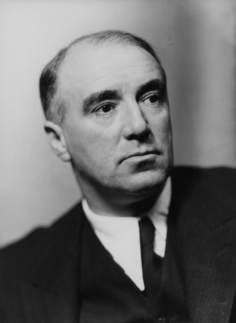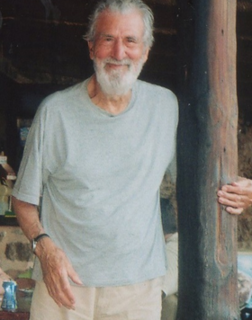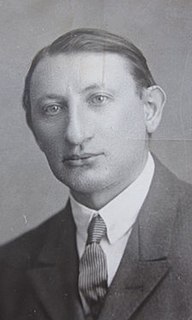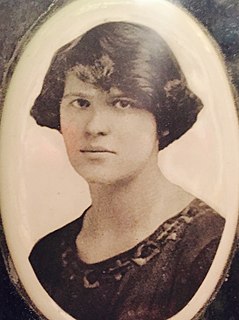Related Research Articles

Rajani Palme Dutt, generally known as R. Palme Dutt, was a leading journalist and theoretician in the Communist Party of Great Britain. His classic book "India Today" heralded Marxist approach in Indian historiography.

Harry Pollitt was a British communist who served as the General Secretary of the Communist Party of Great Britain (CPGB) from 1929 to September 1939 and again from 1941 until his death in 1960. Pollitt spent most of his life advocating communism. Ideologically a Marxist-Leninist, Pollitt was an adherent particularly of Joseph Stalin even after Stalin's death and disavowal by Nikita Khrushchev. Pollitt's acts included opposition to the Allied intervention in the Russian Civil War and Polish–Soviet War, support for the Spanish Republicans during the Spanish Civil War, both support and opposition to the war against Nazi Germany, defence of the communist coup in Czechoslovakia, support for the 1956 Soviet invasion of Hungary, and criticism of British colonialism.

The New Communist Party of Britain is a anti-revisionist Marxist-Leninist communist party in Britain. The origins of the NCP lie in the Communist Party of Great Britain from which it split in 1977. The organisation takes an anti-revisionist stance on Marxist-Leninism and is opposed to Eurocommunism. After the fall of the Soviet Union the party was one of two original British signatories to the Pyongyang Declaration in 1992. It publishes a newspaper named The New Worker.

The Workers' Socialist Federation was a socialist political party in the United Kingdom, led by Sylvia Pankhurst. Under many different names, it gradually broadened its politics from a focus on women's suffrage to eventually become a left communist grouping.

The Communist Party was a Left Communist organisation established at an emergency conference held on 19–20 June 1920 at the International Socialist Club in London. It comprised about 600 people.
Andrew Philip Drummond-Murray, commonly known as Andrew Murray, is a British trade union and Labour Party official and activist. Murray was seconded from Unite the Union to Labour headquarters for the 2017 United Kingdom general election, subsequently becoming an adviser to Jeremy Corbyn from 2018 to 2020.

William Charles Rust was a British newspaper editor and communist activist.

Vic Allen was a British communist, human rights activist, political prisoner, sociologist, historian, economist and emeritus professor at the University of Leeds who worked closely with British trade unions, and was considered a key player in the resistance against Apartheid in South African. He was also known for being a key activist within the Communist Party of Great Britain (CPGB), and for spending his life supporting the South African National Union of Mineworkers (NUM).
Nina Claire Temple is a British politician who was the last Secretary of the Communist Party of Great Britain and was formerly a think-tank director in the United Kingdom.

The Communist Party of Great Britain (CPGB) was the largest communist party in Great Britain from 1920 to 1991. Founded in 1920 through a merger of several smaller Marxist parties, the CPGB gained the support of many socialist organisations and trade unions following the political fallout of the First World War and the Russian October Revolution. Ideologically the CPGB was a socialist party organised upon Marxism–Leninist ideology, strongly opposed to British colonialism, sexual discrimination, and racial segregation. These beliefs led many leading anti-colonial revolutionaries, feminists, and anti-fascist figures, to become closely associated with the party. Many prominent CPGB members became leaders of Britain's trade union movements, including Jessie Eden, Abraham Lazarus, Ken Gill, Clem Beckett, GCT Giles, Mike Hicks, and Thora Silverthorne.
George Bolton is a Scottish former trade unionist and communist activist.
Peter Edward Carter was a British trade unionist.
Jack Villiers Leckie was a Scottish communist activist.
David Ramsay (1883–1948) was a British socialist activist.

David Petrovsky (Lipetz) — a member of the Central Committee of the Jewish Socialist Federation of America, a member of the Socialist Party of America, the editor of the Jewish Daily Forward newspaper, journalist, political and economic scientist, a member of the Central Committee of the General Jewish Labour Bund in Lithuania, Poland and Russia (Bund) until 1919, a member of the Central Council of Ukraine (1917-1918), the statesman of the Soviet Union.

Far-left politics in the United Kingdom have existed since at least the 1840s, with the formation of various organisations following ideologies such as Marxism, revolutionary socialism, communism, anarchism and syndicalism.

Rose Cohen was a feminist and an active member of the suffragette movement in Great Britain in the 1910s, and later a founding member of the Communist Party of Great Britain in 1920. She worked for Communist International (Comintern) from 1920 to 1929. Between 1931 and 1937, Cohen served as a foreign editor of The Moscow News. She was executed during the Great Purge in the Soviet Union, and posthumously rehabilitated in the Soviet Union in 1956.

Percy Eded Glading was an English communist and a co-founder of the Communist Party of Great Britain (CPGB). He was also a trade union activist, an author, and a spy for the Soviet Union against Britain, an activity for which he was convicted and imprisoned.
Edgar Thoreau Whitehead (1890–1956) was a British political activist, who served on the executive of the Communist Party of Great Britain but later became a fascist.
Harry Young was a British socialist activist.
References
- 1 2 3 4 5 Graham Stevenson, "Costello Mick", Compendium of Communist Biography
- ↑ "Workers' Participation in the Soviet Union". archive.org. Retrieved 8 November 2016.
- 1 2 3 Francis Beckett, "The Sixth Man", New Statesman , 18 October 2007
- ↑ Nick Cohen, "Goodbye Stalin, hello Mammon: Once he was Red Mick, now capitalism calls. Nick Cohen spoke to him", The Independent , 13 December 1992